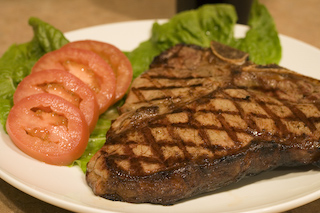Forms Of Charcoal For Food Poisoning
Charcoal has emerged as a popular remedy for various health issues, including food poisoning. Its ability to absorb toxins has led many to consider different forms of charcoal for gastrointestinal distress. In this article, we will explore the various types of charcoal used for food poisoning, their effectiveness, and safety considerations.
Charcoal for food poisoning
Charcoal for food poisoning is a lightweight black residue consisting of carbon and ash produced by heating wood or other organic materials in the absence of oxygen. This process, known as pyrolysis, creates a porous material that can absorb a wide range of substances. The most common types of charcoal used for medicinal purposes include activated charcoal, regular charcoal, and bamboo charcoal. Each type has unique properties that influence its efficacy and safety for treating food poisoning.
1) Activated charcoal
What is activated charcoal?: Activated charcoal is produced by treating regular charcoal with high temperatures and gases to create a porous structure. This process increases its surface area, allowing it to trap toxins and chemicals more effectively. Activated charcoal is commonly used in medical settings for various poisonings and overdoses.
Effectiveness for food poisoning: Activated charcoal has been shown to adsorb certain toxins, making it a popular choice for food poisoning. It may help bind harmful substances in the gastrointestinal tract, potentially reducing their absorption into the bloodstream. However, its effectiveness varies depending on the type of toxin involved. For example, it is more effective against certain chemicals and medications but may not work as well against bacterial toxins from pathogens like Salmonella or E. coli.
Safety considerations: While activated charcoal is generally safe for short-term use, it can cause gastrointestinal side effects, such as constipation, nausea, and abdominal discomfort. It can also interact with medications by reducing their effectiveness. Therefore, consulting a healthcare professional before using activated charcoal, especially in the case of food poisoning, is essential.
2) Regular charcoal
What is regular charcoal?: Regular charcoal, often referred to as lump charcoal or briquettes, is primarily used for grilling and cooking. It is made from various carbon-rich materials, such as wood or peat, but lacks the extensive processing of activated charcoal.
Effectiveness for food poisoning: While some believe that regular charcoal can aid in treating food poisoning, it is not recommended for medicinal use. Regular charcoal does not have the same adsorptive properties as activated charcoal and may not effectively bind to toxins. Additionally, impurities in regular charcoal can pose health risks when ingested.
Safety considerations: Using regular charcoal for food poisoning is not advisable due to its potential contaminants and lack of efficacy. Consuming regular charcoal could lead to more harm than good, making it an unsuitable option for gastrointestinal issues.
3) Bamboo charcoal
What is bamboo charcoal?: Bamboo charcoal is made from the carbonisation of bamboo plants at high temperatures. It is often marketed for its environmental benefits and purported health advantages. This type of charcoal is rich in minerals and is used in various wellness products, including supplements and skincare.
Effectiveness for food poisoning: While bamboo charcoal shares some adsorptive qualities with activated charcoal, research on its effectiveness for food poisoning is limited. It may help absorb certain toxins, but more evidence is needed to establish its efficacy in treating gastrointestinal distress.
Safety considerations: Bamboo charcoal is generally considered safe for consumption in small amounts. However, it may not provide the same level of toxin absorption as activated charcoal. As with any form of charcoal, it is crucial to consult a healthcare professional before using bamboo charcoal for food poisoning.
4) Coconut shell charcoal
What is coconut shell charcoal?: Coconut shell charcoal is derived from the carbonisation of coconut shells. It is known for its high porosity and surface area, making it an effective adsorbent. Like activated charcoal, coconut shell charcoal is commonly used in health and beauty products.
Effectiveness for food poisoning: Coconut shell charcoal has been suggested as a natural remedy for food poisoning due to its ability to absorb toxins. Some studies indicate that it may effectively bind certain chemicals and pathogens. However, its use as a standalone treatment for food poisoning is not widely supported, and more research is needed to confirm its efficacy.
Safety considerations: Coconut shell charcoal is generally safe for short-term use. It may cause mild gastrointestinal side effects, such as constipation. As always, it is important to consult a healthcare provider before using it for food poisoning.
5) Vegetable charcoal
What is vegetable charcoal?: Vegetable charcoal is made from various plant materials, including wood and other organic matter. It is similar in composition to activated charcoal but may not undergo the same activation process.
Effectiveness for food poisoning: Like other forms of charcoal, vegetable charcoal is thought to have adsorptive properties. However, its effectiveness in treating food poisoning has not been thoroughly studied. It may offer some benefits, but it is not a guaranteed remedy.
Safety considerations: Vegetable charcoal is generally safe for consumption, but its efficacy and potential side effects are not as well-documented as those of activated charcoal. Consulting with a healthcare professional is advisable before using it for food poisoning.
Limitations of charcoal for food poisoning
While various forms of charcoal may have some potential for managing food poisoning, several limitations should be noted:
1) Not a cure-all: Charcoal should not be viewed as a definitive solution for food poisoning. Its effectiveness depends on the specific toxin and the time elapsed since ingestion. In severe cases, medical intervention is necessary.
2) Delayed treatment: Relying on charcoal for food poisoning may delay seeking medical attention. If symptoms worsen, timely care becomes crucial. Charcoal should be used as a supplementary approach rather than a primary treatment.
3) Potential side effects: Each form of charcoal can cause gastrointestinal side effects, and excessive consumption may lead to complications such as bowel obstruction. It is essential to use these products cautiously and under medical guidance.
4) Risk of aspiration: In liquid form, charcoal poses a risk of aspiration, particularly in vulnerable individuals. This can lead to serious complications, making it essential to use it carefully.
Alternatives to charcoal for food poisoning
If you are dealing with food poisoning, several alternatives may be safer and more effective than charcoal:
1) Hydration: Rehydration is the most critical step in managing food poisoning. Drinking clear fluids, such as water or oral rehydration solutions, helps replace lost fluids and electrolytes.
2) Ginger: Ginger has natural anti-nausea properties and may help alleviate symptoms of food poisoning. Consuming ginger tea or supplements can provide some relief.
3) Probiotics: Probiotics can support gut health and may help restore balance after food poisoning. Yogurt or probiotic supplements can aid in recovery.
4) Rest: Resting allows your body to recover from the stress of food poisoning. Prioritising sleep and minimising physical activity can aid in the healing process.
Charcoal in various forms
While various forms of charcoal, including activated charcoal, bamboo charcoal, and coconut shell charcoal, have gained popularity for their potential use in managing food poisoning, their effectiveness and safety can vary significantly. Activated charcoal remains the most studied and widely recommended form for medicinal use. However, it is essential to approach the use of any charcoal product with caution, recognizing its limitations and potential side effects.
For those experiencing food poisoning, the best course of action is to focus on rehydration, rest, and seeking medical attention when necessary. By understanding the different types of charcoal and their appropriate uses, individuals can make informed decisions about managing food poisoning effectively. Always consult a healthcare professional before trying new remedies to ensure safety and efficacy in your treatment plan.



